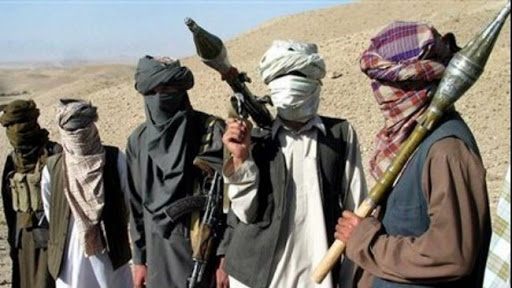United Nations: An estimated 6,000-6,500 Pakistani terrorists is currently hiding in neighbouring Afghanistan. Most of them belong to the most of them with the Tehrik-e-Taliban Pakistan (TTP). These Pakistani terrorists are posing a threat to both the countries, a United Nations (UN) report has said.
The report is known as the 26th report of the Analytical Support and Sanctions Monitoring Team. The report mentions about the Islamic State (IS), al-Qaida. It also mentions about associated individuals and entities that the terror group al-Qaida in the Indian Sub-continent (AQIS), and how they operate. The terrorists have been given protection by the Taliban.
“The group reportedly has between 150 and 200 members from Bangladesh, India, Myanmar and Pakistan. The current leader of AQIS is Osama Mahmood…, who succeeded the late Asim Umar. AQIS is reportedly planning retaliation operations in the region to avenge the death of its former leader,” the report stated.
The TTP a ‘large terrorist group present in Afghanistan’ has claimed responsibility for various high-profile attacks in Pakistan. It has also helped other organisations like Jamaat-ul-Ahrar and Lahskhar-e-Islam, the report said.
It mentioned that many former TTP militants have joined IS in Iraq and the Levant – Khorasan (ISIL-K) and member states expect that the group and its various splinter groups will align themselves with ISIL-K.
“The total number of Pakistani foreign terrorist fighters in Afghanistan, posing a threat to both countries, is estimated at between 6,000 and 6,500, most of them with TTP. A number of other terrorist groups are active in Afghanistan, most operating under the umbrella of the Taliban but some aligned with ISIL-K,” the report informed.
The report comes over a fortnight after India at the UN asked Pakistan to introspect as to why it is universally acknowledged as the ‘international epicentre’ of terrorism and the ‘best safe haven for terrorists’. India urged the global community to call upon Islamabad to take sustained, verifiable and irreversible actions against terror outfits operating from its soil.
In June this year, Pakistan Prime Minister Imran Khan publicly acknowledged the presence of up to 40,000 terrorists in Pakistan. He said that the terrorists from Pakstan have carried out attacks in neighbouring countries.
According to the member states, Al-Qaida is covertly active in 12 Afghan provinces and its leader Aiman al-Zawahiri remains based in the country, the report said. The monitoring team estimates the total number of al-Qaida fighters in Afghanistan at between 400 and 600.
“The leadership maintains close contact with the Haqqani Network. In February 2020, al-Zawahiri met with Yahya Haqqani, the primary Haqqani Network contact with Al-Qaida since mid-2009, to discuss the ongoing cooperation,” it said.
The monitoring team also estimates the current ISIL-K membership in Afghanistan at 2,200. The leader is Sheikh Matiullah Kamahwal, previously the head of ISIL-K in Kunar. The leadership also includes Syrian national Abu Said Mohammad al-Khorasani and Sheikh Abdul Tahir. The team was informed that two senior ISIL commanders, Abu Qutaibah and Abu Hajar al-Iraqi, have arrived in Afghanistan from the Middle East.
The report said that ISIL-K continues to suffer losses in Kunar province, to where it moved from Nangarhar at the end of 2019. In April and May, the Afghan Special Forces conducted a series of countrywide operations that led to the arrest of the group’s leaders, including Aslam Farooqi (also known as Abdullah Orokzai), the head of ISIL-K, his predecessor Zia ul-Haq (also known as Abu Omar Khorasani) and other senior members.
Agencies






































